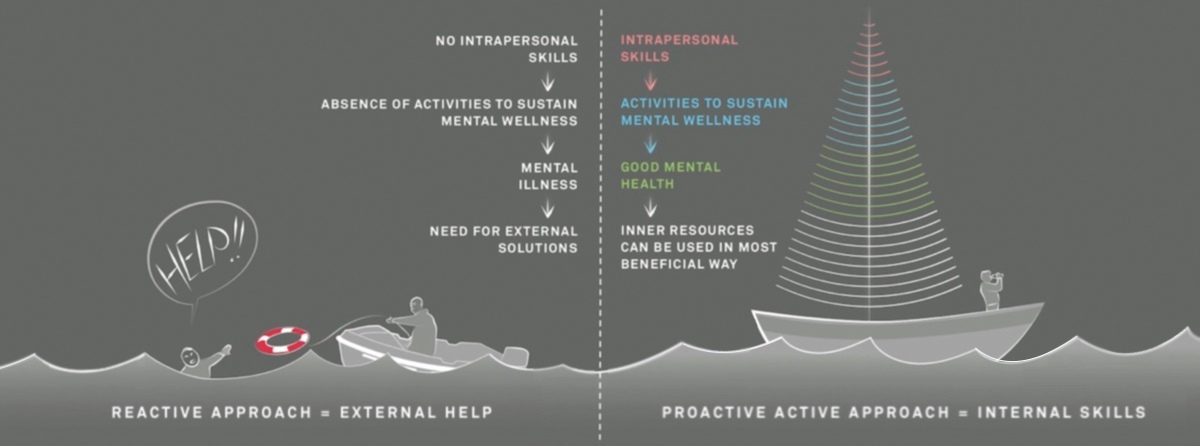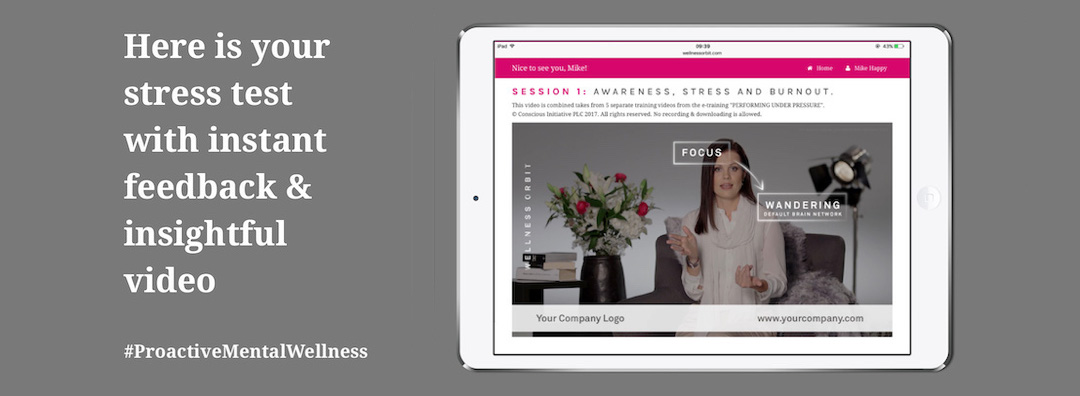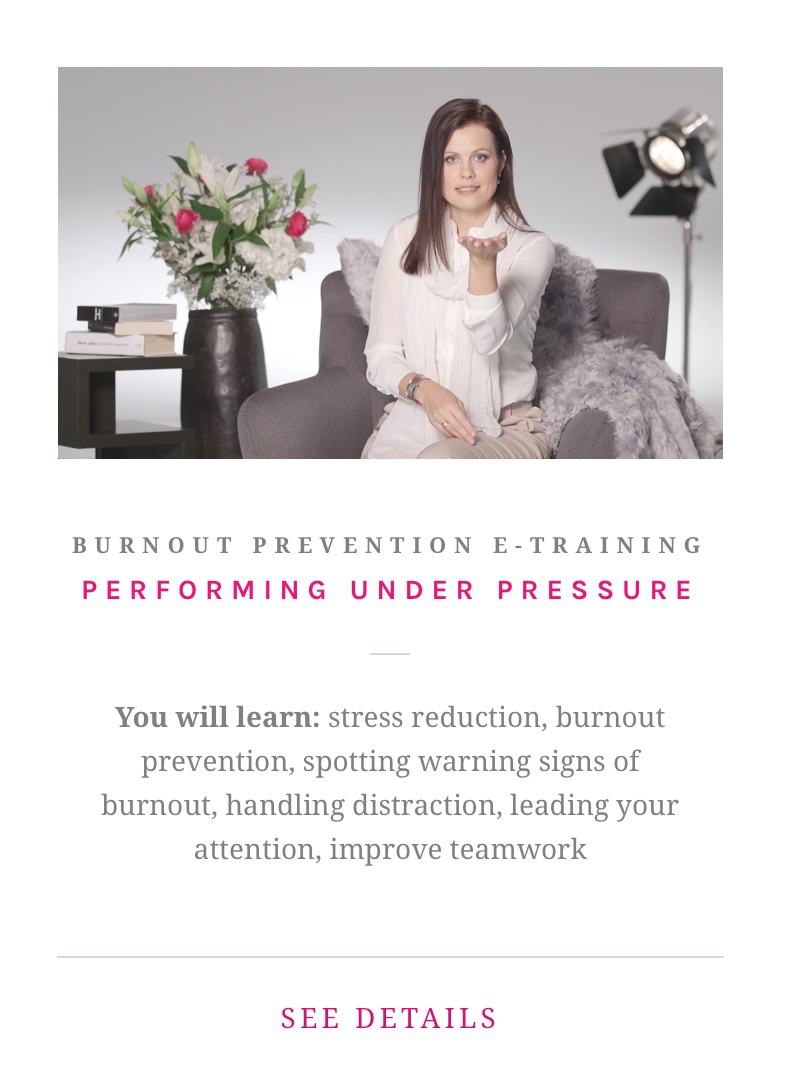In today's fast-paced workplaces, mind health and lack of excellent mental wellness have become a major concern for human resources and business leaders. Keep reading, and discover how to achieve psychological safety and improve awareness of psychosocial risk factors.
Improving psychological safety becomes tangible when individuals undergo mental wellness training combined with proper self-evaluation.
Only individuals with a strong and focused mind are truly committed to fostering a positive work culture and actively contribute to building a supportive and productive environment.
When individuals feel safe to be vulnerable, make mistakes and admit their shortcomings, it cultivates an environment of trust and empathy. This trust, in turn, enhances collaboration, increases team cohesion, and boosts overall morale.
Psychological safety isn't only about knowing illnesses, mental health first aid, or the work environment. Only a minority of people (around 20-30%) experience mental ill health, yet we focus more on studying mental illnesses than on developing a solid approach to securing mental wellness for all individuals in the workplace (see the graph below).

The reality is that everyone has mental health, and prioritizing proactive well-being strategies benefits all. That is what securing mind healh needs to be founded upon the proactive mental wellness approach that enables people to become more resilient in the face of challenges and setbacks.
By fostering psychological safety, workplaces can unlock the full potential of their teams, driving innovation, productivity, and employee engagement.
As businesses adapt to an ever-changing regulation and market demands, investing proactively in securing excellent mental wellness is a crucial step toward building thriving workplaces where individuals can bring their whole selves to work and contribute to their fullest.
We face a challenging starting point, as our society has lacked and continues to lack intrapersonal education. As a result, stress and anxiety levels remain high, along with the hidden mental health costs associated with the demanding work challenges and pressures.

We kindly remind you that achieving good mind health requires having practical intrapersonal skills, self-awareness and ongoing reduction of psychosocial risk factors.
What are the psychosocial risk factors?
Psychosocial risk factors refer to workplace factors that can detrimentally affect an individual's mental health and wellbeing. These factors include high job demands, low control, inadequate social and mental health support (lack of mental health first aid training and counseling), workplace harassment or other toxic work relations.
To mitigate psychosocial risk factors, employers must prioritize securing mental wellness proactively for everyone.
It becomes possible by implementing policies and practices that promote a safe, supportive, and healthy work environment and allow people to train their minds to address challenges.
Workplace wellbeing initiatives should include proactive mental wellness training besides employee assistance programs. Also, supporting flexible work arrangements and counseling when things get harsh could ease things for people. All this, when done right and organization-wide can lead to a positive workplace culture and the securing of personal sustainability.
One of the key ways to achieve psychological safety and promote workplace wellbeing is encouraging people to take mental wellness trainings.
|
Mental wellness training provides individuals with the knowledge and intrapersonal skills needed to identify and manage their inner processes like the whereabouts of their awareness, their thoughts, their emotions and their individual and group behaviors effectively.
By participating in these mental wellness trainings, employees can learn practical strategies to cope with stress, anxiety, and other potential mental health issues, leading to increased resilience, productivity and job satisfaction.
Self-evaluation of mental wellness before and after each training, like in the case of all Wellness Orbit online trainings, is also crucial in achieving psychological safety and promoting workplace wellbeing.
Regular training with self-assessment is the success factor
Regularly assessing one's mental wellness status can help identify strengths and weaknesses, highlight areas for improvement, and provide a roadmap for achieving a healthy state of mind.
It's equally essential to recognize the early warning signs of mental health issues, such as stress, burnout, depression and anxiety, and seek appropriate professional help when needed.
All our trainings have an inbuilt questionnaire (see the illustration below), which identifies when you need to seek help and also points out where you need to improve your existing intrapersonal skills.

Training your mind is an important key aspect of achieving psychological safety and promoting workplace wellbeing.
You can't replace individual initiative and personal responsibility with rules and regulations. Some rules are required, but overregulation kills initiative and creativity.
Wellness Orbit online training "Performing Under Pressure" provides effective techniques for managing stress and noticing your emotions and inner reactions. In it, Dr. Lass gives you an understanding of how personal responsibility allows for calming your mind and monitoring your stress levels.
Combining all three e-trainings allows for achieving a positive shift in employee productivity, engagement and overall wellness.
Dr. Bill Howatt has stated well, "A psychologically safe relationship is where an employee and leader feel safe to be transparent and vulnerable. Relationship management is dynamic. Leaders must always pay attention to this account and be mindful of their deposits and withdrawals. Building psychologically safe relationships means that you have many more deposits than withdrawals, and this is the same for any authentic relationship that is valued and enjoyed." That is why both leaders and employees need good intrapersonal skills.
Conclusion
Achieving psychological safety and promoting workplace wellbeing is crucial for maintaining a fit mind when people meet work-related challenges and pressures. By recognizing psychosocial risk factors, prioritizing workplace wellbeing, and taking proactive mental wellness training which allows self-evaluating your inner states you possess efficient tools for training the mind.
Using online training with self-evaluations (see the images below) allows individuals and organizations to create more wellbeing and workplaces to secure a safe, supportive, and healthy work environment.
Let us remind you that achieving and maintaining good wellbeing represents an ongoing journey. What makes this continuous effort easier is self-reflection and self-awareness of the factors that impact mind health. That is why all Wellness Orbit trainings come with self-evaluation tools and individual instant feedback. You and the people in your team can only change what you understand! The stronger each individual's mind, the stronger the team.








